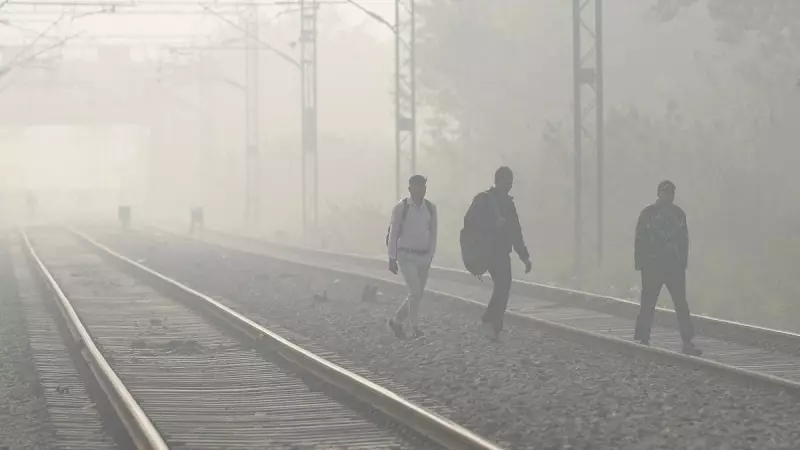
Delhi residents woke up to another day of hazardous air quality as the capital's pollution levels deteriorated significantly, returning to the 'very poor' category that has become all too familiar during the winter months.
Alarming Air Quality Readings
The air quality index (AQI) in Delhi registered at 372 on Friday morning, firmly placing it in the 'very poor' category according to monitoring agencies. This significant deterioration marks a worrying trend as the city continues to battle its annual pollution crisis.
Data from the System of Air Quality and Weather Forecasting and Research (SAFAR) revealed that several monitoring stations across the city recorded even higher pollution levels. The Air Quality Early Warning System predicted that air quality would likely remain in the 'very poor' category for the coming days, indicating no immediate relief for the city's residents.
GRAP Measures Activated
In response to the deteriorating conditions, authorities have implemented Stage II of the Graded Response Action Plan (GRAP). This includes a ban on the use of coal and firewood in hotels, restaurants, and open eateries, along with increased parking fees to discourage private vehicle usage.
The Commission for Air Quality Management (CAQM) stated that the decision was made following a review meeting where the projected air quality scenario was discussed. The sub-committee noted that meteorological conditions were becoming unfavorable for dispersion of pollutants.
Multiple Factors Contributing to Pollution
Several factors have contributed to the current air quality crisis. Stubble burning in neighboring states continues to be a significant contributor, with satellite imagery showing numerous farm fires in Punjab and Haryana.
Local pollution sources including vehicle emissions, construction dust, and industrial activities have compounded the problem. Meteorological conditions such as low wind speed and dropping temperatures have created a situation where pollutants are trapped close to the ground.
The India Meteorological Department (IMD) reported that wind conditions are expected to remain unfavorable for the next few days, which means pollution levels are likely to persist or potentially worsen.
Health Advisory Issued
Health experts have issued warnings for residents, particularly those with pre-existing respiratory conditions, the elderly, and children. Doctors recommend limiting outdoor activities and wearing N95 masks when going outside.
Hospitals across the city have reported an increase in patients complaining of respiratory issues, including coughing, throat irritation, and breathing difficulties. Medical professionals advise people to keep medications handy and seek medical attention if symptoms worsen.
The current situation underscores the urgent need for comprehensive, year-round measures to address Delhi's persistent air pollution problem rather than reactive steps taken only when conditions deteriorate significantly.





